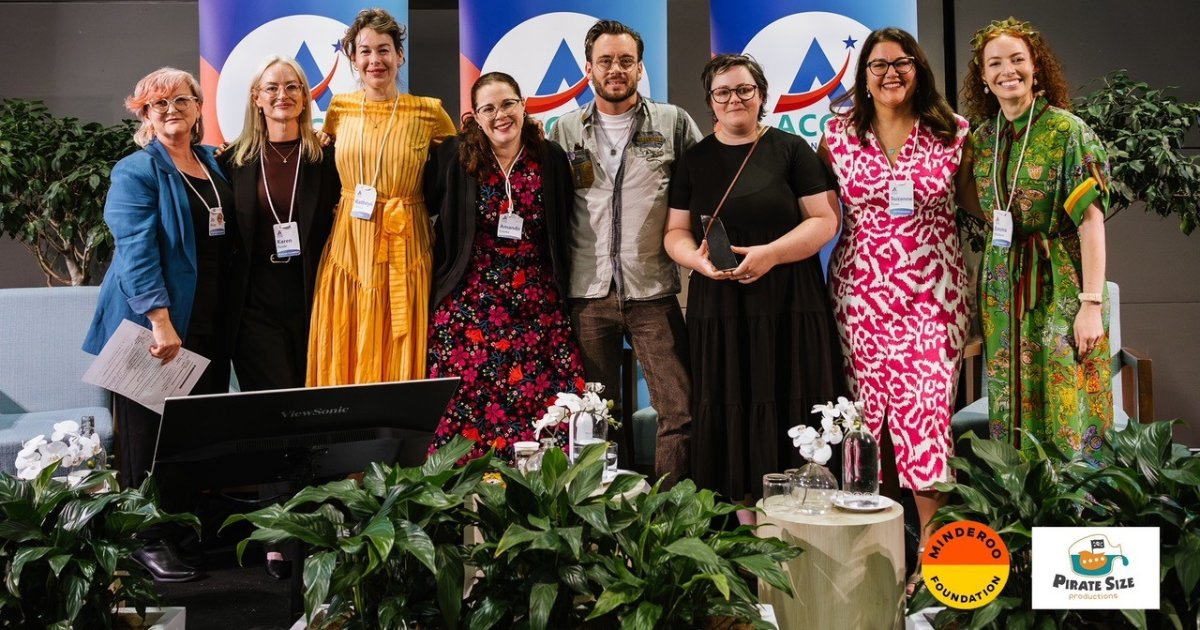Australian Children’s Content Focuses on Expansion, Licensing

By Dylan Desmaris
As locally made content struggles to increase its foothold in Australia, producers are pushing for an increase in a refundable tax rebate.
The rebate, known as the “producer offset,” was front and center at the recent Australian Children’s Content Summit in New South Wales. Programmers at the event suggested increasing the rebate to 40% (up from 30%), the same level as the amount available for feature films. The income rebate is available to producers that gain a certificate from Screen Australia and can be received if principal production started after July 1, 2021.
The producer offset is seen as key to helping with development of Australian children’s programming, which is a major source for brand licensing—a prominent example is Ludo Studio’s global hit Bluey.
The rebate also took on added importance since the end of a content quota system for commercial networks that was revised in 2021 to drop the requirement that broadcasters screen Australian children’s programs. The system was suspended during the pandemic in 2020 and brought back with fewer restrictions the following year by Communications Minister Paul Fletcher.
There are a few reasons for increasing the producer offset for children’s programming, Julia Adams, a Partner at the law firm Schiff & Co., said at the summit. “We are missing a hole in the marketplace where we don’t have licence fees to fill up a space and production is getting more expensive. We are no longer an attractive co-production territory to work with people overseas. We need a few tools to then go out [for co-productions and raising money]. If we can only bring a 30% offset and no co-commission, we are just not an attractive co-production partner.”
Previously, free-to-air networks like Seven, Nine, and Ten had to broadcast a minimum of 260 hours of children’s programs annually, half of which was to be first release with a minimum of 130 hours of Australian preschool programs annually.
Character and entertainment IPs account for about half of the Australian licensing market, according to Alan Schauder, Group CEO at the brand licensing and merchandising agency Merchantwise. The decline in free-to-air broadcasting in Australia has made developing a “traditional hit more challenging,” he said. Additionally, the downturn in free-to-air has coincided with the rise of streaming services like Netflix, Australian Broadcasting Corp.’s ABC iView, and Disney+, as well as YouTube and influencers.
“The removal of quotas for local children’s free-to-air content combined with fragmentation of viewing channels makes it harder to launch and build a traditional hit property with licensing potential,” Schauder said. “Partnerships with global broadcasters like Netflix, Disney+, BBC, and ABC are important for visibility, but creator-owned and direct-to-consumer models are gaining traction, backed by organic social media.”
Regardless how content is delivered, the preference among Australian parents for locally produced content has remained clear. Recent studies have shown 83% of Australian parents believe it is essential that children’s content reflects local culture.
With that in mind, ABC unveiled two new children’s series at the summit, Casper Crew and Happy House, both of which will be released in 2026. The former is the first children’s offering from production company Easy Tiger. SLR Productions and Sinking Ship Entertainment, meanwhile, said at the summit that production has started on the new series Monkey Base. Under the agreement, SLR will oversee distribution of the series in Australia and New Zealand, while Sinking Ship handles design and animation as well as international distribution.
This new programming will build on the base established by Bluey but also extend the portfolio of Australia-produced content that includes Space Nova, Little J, Big Cuz, Dirt Girls, and others. Aboriginal Australian actor/author Leah Purcell’s Oombarra Productions is also developing the children’s adventure film Koa Kid, which received a share of $1.2 million in funding from Screen Australia in 2023.
“Audiences want to see their own culture, communities, and traditions reflected, whether that is through stories of family life, community spirit, music, or dance,” said Suzanne Ryan, CEO of SLR Productions, whose releases include Space Nova (2021) and Alice-Miranda Friends Forever (2019). “This is why Australian children’s programming resonates far beyond the screen as it mirrors who we are and how we live. YouTube has been a growth channel, and short-form series and music content are driving toys, publishing, and live experiences. The platform is often the first touchpoint for brands that then expand into consumer products.”




